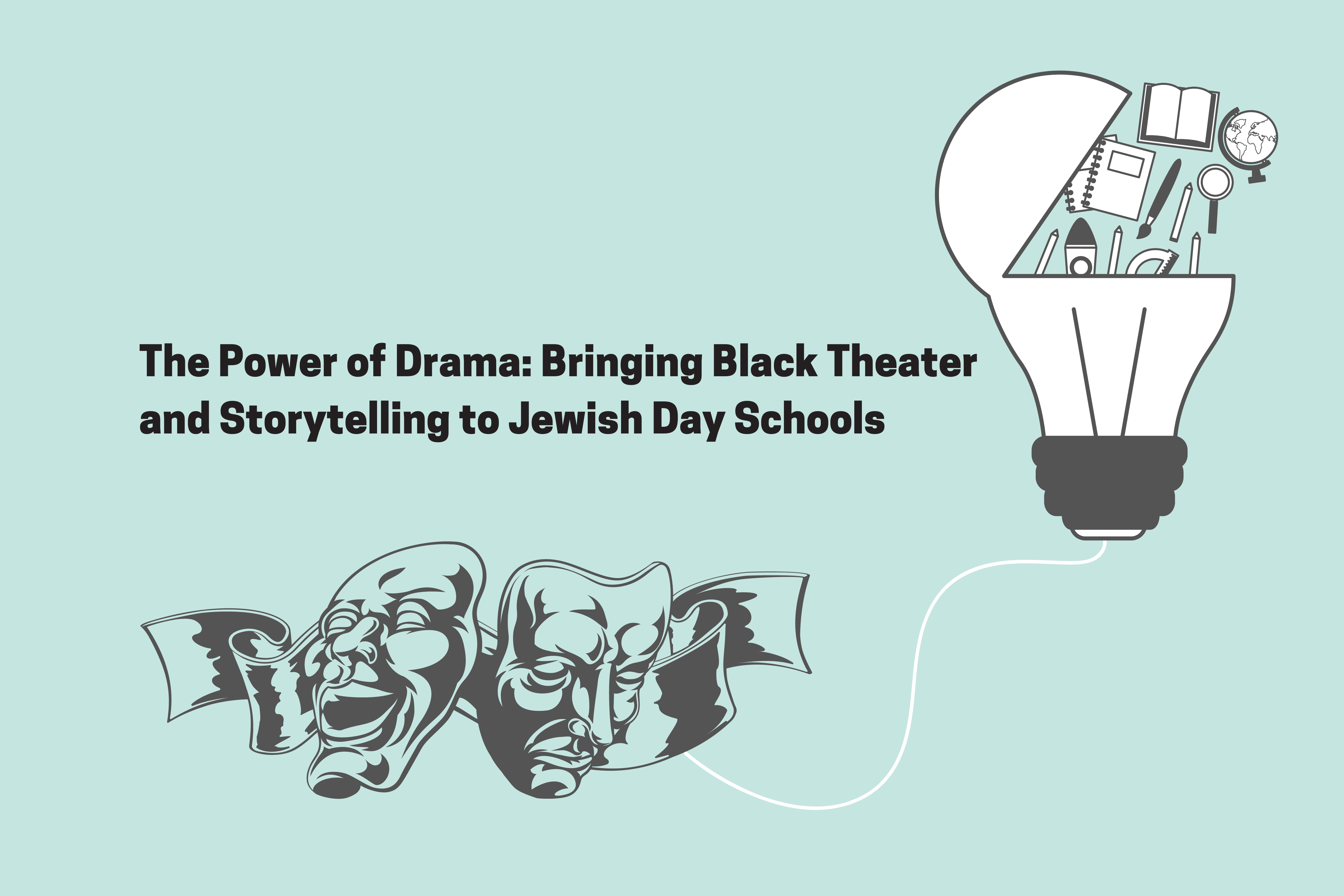
Theater is a mode of storytelling that allows audience members to witness and participate in dialogues and conversations as they happen in real time. For this reason, it is particularly powerful as an educational tool used to reorient people’s perspectives with a reality they may never have seen before. This is the idea behind Exploring Black Narratives (EBN), an educational program that incorporates contemporary Black theater into the curriculum of Jewish day schools. We connected with Jessica Moore, a Brooklyn native who currently serves as the Assistant Director at Congregation Beth Elohim, to ask her about her incredible work harnessing the power of drama and storytelling into an anti-racist educational model.
Jessica Moore has extensive experience both in performing arts and in pedagogy, having graduated from Syracuse University with a double-major in Political Science and film. She then went on to earn her MA in film and teaching. Moore initially became involved in EBN when she met Rabbi Kendell Pinkney through a JoC educators fellowship that she joined to explore innovative techniques in teaching and learning. Pinkney was “like a G-dsend,” according to Moore. “He was also exploring theater making as well as education and storytelling connected to Jewish narratives. We are both people who converted to Judaism. He introduced me to Lonnie Firestone, one of the founders of EBN.” With Rabbi Pinkney as her mentor, Moore realized that incorporating Black stories into Jewish day school curricula could be eye-opening for day school students as they contextualize their own struggles and privileges as majority white Jewish students.
Two of the plays that EBN introduces to day school curricula are Pipeline by Dominique Morisseau, and School Girls; Or the African Mean Girls Play by Jocelyn Bioh. These plays were selected for the breadth of Black experience they explore, and for the elements of privilege and struggle that the Jewish students would be able to relate to. For instance, Pipeline follows the story of a young man who is the only non-white person at his private school—the setting is immediately familiar to the day school students, but the experience of racism may not be. As such, Pipeline presents a rich opportunity for students to have meaningful discussions about various forms of prejudice: classism, racism, sexism. Bioh’s play takes place in Ghana, but follows cafeteria popularity politics that are relatable to anyone who’s ever set foot in a school. Lonnie Firestone says the instant familiarity that day school students feel with the setting of the play helps them see similarities to their own lives while also explicitly understanding the distinctions between the characters’ experiences and their own.
The works are chosen precisely for the wealth of discussion material they introduce, by being radically new and also deeply relatable. “When we start talking about not just racism but classism, generational gaps, different relatable themes of aging, angst, anxiety within systems, it’s all things students relate to. I think that’s where the program really thrives—in having guided discussions in the classroom and having students understand the importance of different perspectives in the world and why those perspectives are important to understand regardless of your background or anyone else’s background, Jewish or not Jewish,” said Moore.
Firestone, who is the founder of EBN, also came from a rich theater background: she holds an MFA in Theater from Columbia, and is a lifelong theater devotee. Speaking about her decision to found EBN, Firestone said she was “leaning on the knowledge [she] gained through [her] own reading and study of theater combined with my love of the Jewish community and my love of education. These three things melded at a moment when a lot of people were really interested, and I hope continue to be interested, in how we learn across communities.”
The reason EBN focuses on plays rather than books or film is because theater is an ever- evolving form that demands interpersonal interaction. The students are instructed to reenact scenes, which places them in a rare position of embodying an experience they previously had little to no access to. “Before we can even get to the place of having actual dialogue, human to human… theater is a really vital way to learn how people speak through the dialogue of different writers” said Firestone.
In addition to the lessons students learn from engaging with the text of a play, EBN prides itself on providing deeper interpersonal connections. The program features a workshop in which someone who is professionally involved in the play—such as a playwright, actor, or director—meets with the class and shares their experience of interpreting the play and bringing the characters to life.
The use of theater as an educational form that involves students in the narrative production of new experiences is a critical pedagogical innovation. The team at EBN understands the power of storytelling in all cultures, not just Black or Jewish, and harnesses that power to advance racial equity. Because Jewish day schools remain predominantly white, the EBN program drives impact for a demographic of young folk who can carry these lessons and stories well into their Jewish futures.


